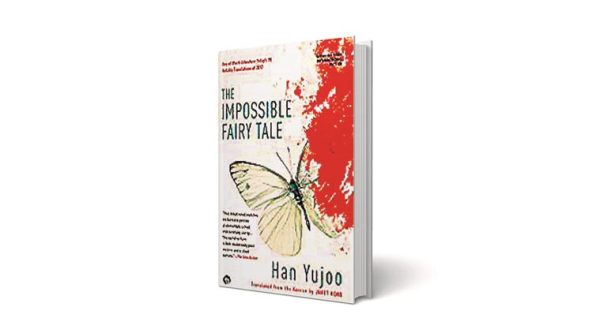Things Fall Apart
The Impossible Fairy Tale is inventive, but not completely satisfying.
Updated: November 3, 2018 1:13:12 am

Han Yujoo’s writing (translated by Janet Hong) is too experimental to suit an average reader’s taste.
(Written by Anshika Ravi)
Title-The Impossible Fairy Tale
Author-Han Yujoo (Translated by Janet Hong)
Publisher-Speaking Tiger
Pages– 224
Price– Rs 399
Author-Han Yujoo (Translated by Janet Hong)
Publisher-Speaking Tiger
Pages– 224
Price– Rs 399
To call The Impossible Fairy Tale a fairy tale is tantamount to pulling the plug on how tales of the genre are viewed and experienced — at least from a traditionalist camp. This fairy tale, if it is to be called so, presents a sinister and rattling concept of childhood, where 12-year-olds kill birds for fun, boys aim to choke others without killing them, and all of them are agents of violence in some way or the other.
At the heart of the novel are two girls — Mia — who has two fathers who dote on her, and which makes her a lucky child; and the unnamed, unremarkable The Child, who carries to school a new scar underneath her clothes every day. As the story unfurls, the readers are pulled into a disorienting narrative — they are told all that Mia wants is a fountain pen, because she has read in a detective novel that a pen can kill if it is dropped from the right height. The Child, on the other hand, has suffered enough to know that the technique is lame, and believes in inflicting pain through direct violence because that is how she experiences the world, one wound at a time. As The Child secretly fills the pages of her classmates’ journals with sentences like “I hate you”, “It hurts”, “I want to kill too”, a series of perturbing events is set into motion.
Han Yujoo’s writing (translated by Janet Hong) is too experimental to suit an average reader’s taste. The novel follows a meta-narrative throughout — with convoluted language and ideas skittering off unceremoniously —which make the read oddly satisfying in some parts and weirdly unsettling in others. Sentences like “The cold child is cold. The cold child sheds cold blood. The cold blood is cold”, where repetitions of words are heavily deployed, are rewarding only in specific contexts. The second part of the book veers into the mind and dreams of the writer, and that is where things fall apart and the read gets painfully exhausting. After a certain point, I stopped caring for the characters and got disinvested in the obscurities of the world painted by the author. The Impossible Fairy Tale is inventive, but not completely satisfying.






















No hay comentarios:
Publicar un comentario